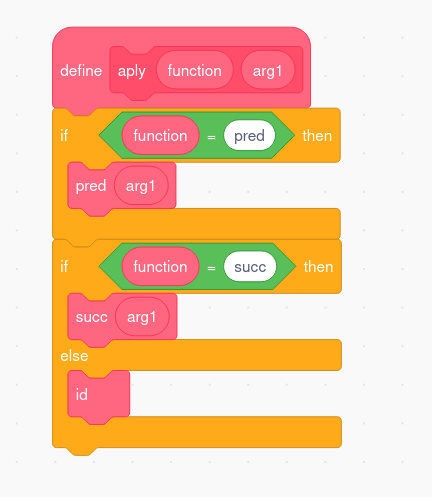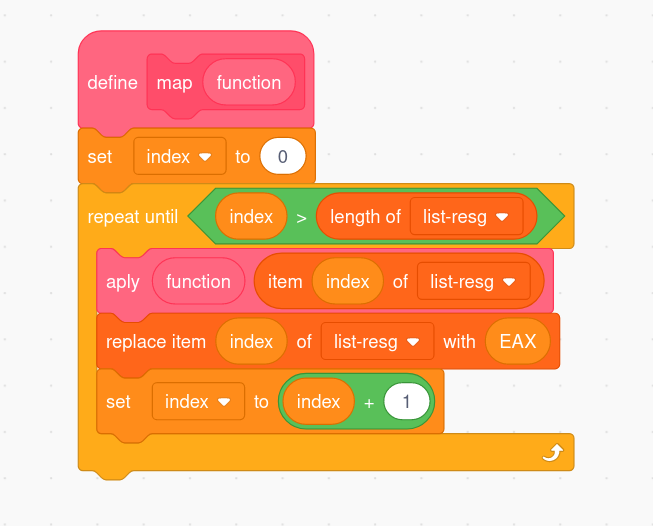Is it feasible to create the List Monad in Scratch?
Sometimes the idea of doing unuseful and challenging things excites me, implementing the list monad in scratch was one of those. Scratch already has implemented the List datatype making our lives easier.
To make things simple, I'll try to create the basic four functions needed to implement the list monad:
map :: (a -> b) -> [a] -> [b]- for applying a function to all elements of a listjoin :: [[a]] -> [a]- for grouping nested monads (lists in this case)return :: a -> [a]- for injecting a value into a listbind :: [a] -> (a -> [b]) -> [b]- for concatenating the results of applying a function to each element of a list
Scratch
Doing things in Scratch is a difficult challenge. Concepts we have taken for granted in other languages do not exist in scratch. Besides actually implementing the list monad, I had to collaborate with the fact that there's:
- No higher order and no function pointers
- No return statements
- Only static variables
To my surprise, there's already a very similar programming language, Assembly!
Dealing with return statements
Let's analyze the function successor written in c (left), which is implemented in assembly (right).

We can see that it uses the auxiliary registry EAX to "return" the result. This means the function that is calling succ will assume the result is going to end up stored in the EAX variable. So creating an EAX variable in Scratch with the same purpose seems reasonable.
Here is the definition of successor, predessecor, and identity function in scratch:

Solving higher order
New problems start to emerge when I want to apply a specific function without being hardcoded. This means that the definition of map is going to be the same regardless of the function for which I want to map each element.
I can't pass functions as arguments in scratch, but I can pass strings. I created a function with the sole purpose of running and applying arguments to functions. To simplify, I'm only using functions of ariety 1, and I have to manually insert them here:

Map
To map each element, I'm assuming there's already content in a list registry. Because there's no return statement, after applying the function to each element, I have to get back the result from EAX.

Return
How I'm I going to make a function that creates lists? This time assembly was't the solution, because the only way to create a list is to click in "add list" button. I could, in theory, pre-create X amount of lists but still I wouldn't be able to know which one to use.
Join
It's impossible to perform a concatenation operation. Scract has this problem: I can access numbers and strings passed as arguments, but I can't access lists. My first try was using the "letter 1 of" block, which, when applied to nested lists, would take the first letter of the first list. This block would work if every element of those lists was only 1 character long. This means I can't iterate through nested lists without being hardcoded.
Conclusion
When I took this challenge, I didn't expect it to be non-viable. Implementing the list monad in such a painful language made me appreciate much more features we counted on from other programming languages.